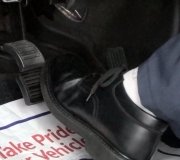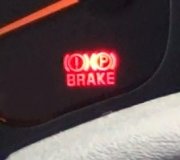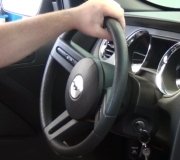The sound continued most of the time that the vehicle was on.
Then, a few days later I was driving at about 25 mph and suddenly the brakes just went loose - in other words I tried to brake and I ended up pushing the brake in all the way to the floor. It just happened all of a sudden. The car still seemed to be on and the engine was still running - I could accelerate just fine.
When I push the brake pedal all the way to the floor there is some resistance and a very small amount of braking action when fully depressed.
The next day I turned the car back on and at first the brakes seemed to be normal, but after a minute they "gave out" again.
Any ideas?
SPONSORED LINKS
Monday, October 12th, 2009 AT 10:35 AM




